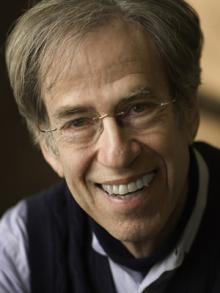Larry Rubin

Photo courtesy of Larry Rubin
Larry Rubin
I was brought up with the belief that one thing a mensch (a human being) does is fight for social justice, so when the Movement in the South became re-activated in the early '60s, it was natural for me to become an organizer for the Student Nonviolent Coordinating Committee (SNCC), first in Southwest Georgia and then in Mississippi.
You hear a lot about the dangers we faced, but the important thing was the work we did. We worked with Black Southerners who were risking their lives by leading their communities in the struggle to exercise their right to vote. We helped fight for equality in public accommodations, education, and employment. In Mississippi, I worked with sharecroppers fighting to have the voice promised them by the Department of Agriculture; and in Holly Springs, Mississippi, during the tsunami of terror unleased by whites on African Americans, I helped organize Black and White workers together into a union.
A large part of my job was to help demonstrate to both the Black and White communities that we could work together with African Americans being in charge. To me, this was a way of showing that the “beloved community” could actually be built.
I was inspired by the fact that over and over again in American history, by fighting for their own rights, African Americans had made America more democratic for all. I believed that by aiding the Black Freedom Movement I was participating in the struggle for a better society. And I was encouraged when I attended the March for Jobs and Freedom and saw hundreds of thousands of Americans of all stripes who believed that, too.
I was further encouraged when I witnessed first hand the explosion of the Movement’s energy and strength when it morphed from being just about civil rights to being about Black self-empowerment.
I spent most of my life as an organizer and publicist in the union movement promoting recognition and acceptance of the principle that we can’t have social equality without economic equity, a principle that today is fast becoming widespread in progressive organizing and politics.
And today I continue to work to promote that principle by moving back to live and organize in Holly Springs, Mississippi, where I was a SNCC staffer back in the day.
At 80 years old, I know I will probably never experience a fully free America, but as the Talmud says, “It is not ours to finish the work; nor is it ours to ignore the work.”
